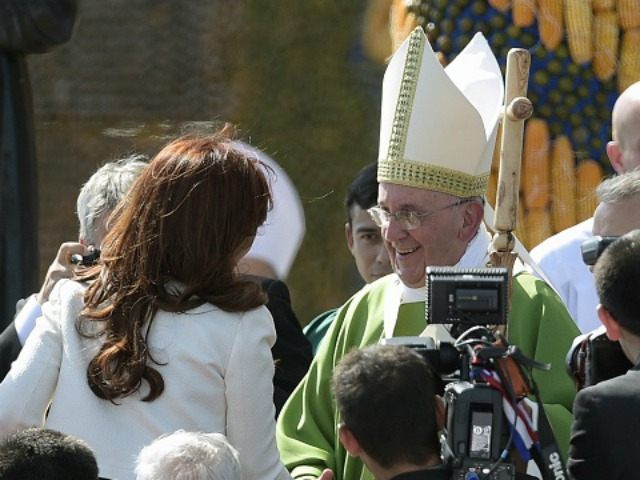In a meeting with officials of the Paraguayan Government, Pope Francis urged them to move beyond a merely “formal democracy” based on the minimalist criterion of fair popular elections in order to create authentically democratic structures and institutions that undergird a truly free society.
Francis praised the Paraguayans for their efforts in recent years “to build a solid and stable democracy” after the violent 1954-1989 dictatorship of General Alfredo Stroessner and said that it is proper to recognize with satisfaction “progress made in this direction, thanks to the efforts of everyone, even amid great difficulties and uncertainties.”
At the same time, Francis suggested, there is more work to be done in Paraguay if it is to achieve the goal of becoming a genuine democratic state.
“I encourage you to continue working to strengthen democratic structures and institutions, so that they can respond to the legitimate aspirations of the nation’s people,” he said. Like other Latin American countries, Paraguay suffers from extensive political corruption as well as an underdeveloped rule of law and civil society.
Francis lauded the form of government enshrined in Paraguay’s Constitution, a “representative, participative and pluralistic democracy,” based on the promotion of and respect for human rights. Nonetheless, he added that it must “banish the temptation to be satisfied with a purely formal democracy,” which he defined as one that “is content with being founded on fair election procedures.”
If the country is to continue to advance, Francis suggested, it must “overcome a spirit of constant conflict,” which has characterized Paraguay’s political climate. In 2008, the social progressive Fernando Lugo, a former Catholic bishop, was elected president on a platform of democracy and attention to the poor and landless in a country marked by enormous inequalities. Four years later the leader was impeached in a process that lasted less than 36 hours, accused of “poor performance of his duties.” He was succeeded by his deputy and onetime ally, Federico Franco.
Paraguay’s current president is Horacio Cartes, a member of the Colorado party, a right-wing association that for many years enjoyed monopoly status in the country’s politics.
The Pope insisted Friday that “dialogue is the best means of promoting the common good, on the basis of a culture of encounter, respect and acknowledgment of the legitimate differences and opinions of others.”
Francis also urged “increased administrative transparency” and “unceasing efforts to combat corruption,” in a country that is known for long-term problems with government graft.
In calling for “an end to violence, corruption and drug trafficking,” Francis also returned to his leitmotiv of priority attention to the poorest and most vulnerable in society.
“An economic development which fails to take into account the weakest and underprivileged is not an authentic development,” he said. “Economic progress must be measured by the integral dignity of persons, especially the most vulnerable and helpless.”
Follow Thomas D. Williams on Twitter @tdwilliamsrome

COMMENTS
Please let us know if you're having issues with commenting.